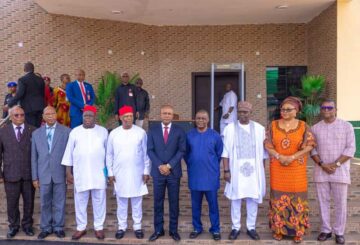 The Africa Centres for Disease Control and Prevention (Africa CDC), the World Health Organization (WHO) and the Robert Koch Institute (RKI) today launched a Health Security Partnership to Strengthen Disease Surveillance and Epidemic Intelligence in Africa.
The Africa Centres for Disease Control and Prevention (Africa CDC), the World Health Organization (WHO) and the Robert Koch Institute (RKI) today launched a Health Security Partnership to Strengthen Disease Surveillance and Epidemic Intelligence in Africa.
Strengthened disease surveillance is a foundational requirement for health security.
In response, the Health Security Partnership in Africa works to improve integrated disease surveillance capabilities across the continent in order to better detect, confirm, and notify health security threats.
With a shared commitment in supporting African countries to strengthen health systems and safeguard public health, WHO’s Regional Offices for Africa and the Eastern Mediterranean have been working closely with Africa CDC under the Joint Emergency Action Plan (JEAP) framework to strengthen public health surveillance, promote regional cooperation, and address health challenges in Africa.
“Our collective ability to prevent, prepare for, and respond to healthy security emergencies remains critical to keeping our communities safe,” said Sara Hersey, Director of Collaborative Intelligence at the WHO Hub for Pandemic and Epidemic Intelligence. “Through this partnership, WHO remains dedicated to working with Member States to systematically strengthen our capabilities and collaboration across stakeholders, sectors and borders for more effective and collaborative disease surveillance in Africa.”
Funded by the Government of Canada’s Weapons Threat Reduction Program and aligned with the health security objectives of the G7-led Global Partnership Against the Spread of Weapons and Materials of Mass Destruction, the Health Security Partnership in Africa signifies a collective commitment to collaboration at the health security interface and will play a catalytic role in accelerating the building and pooling of capabilities and expertise for disease surveillance and epidemic intelligence in and for Africa.




